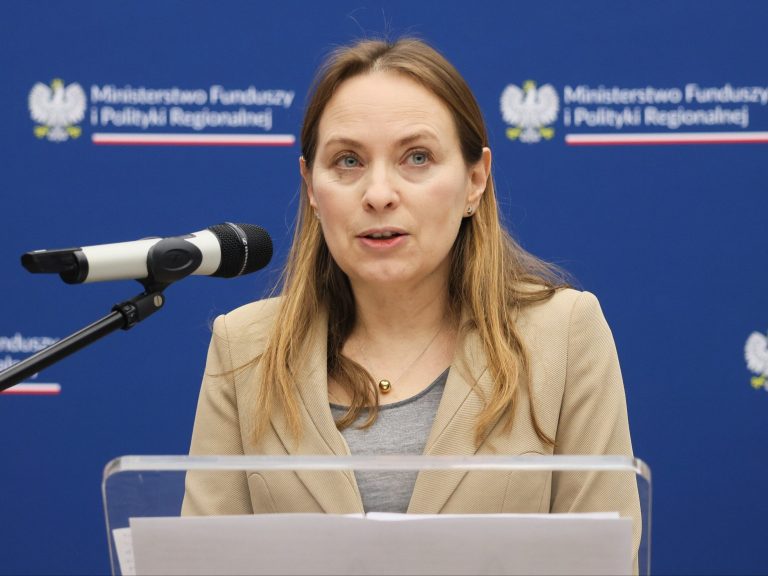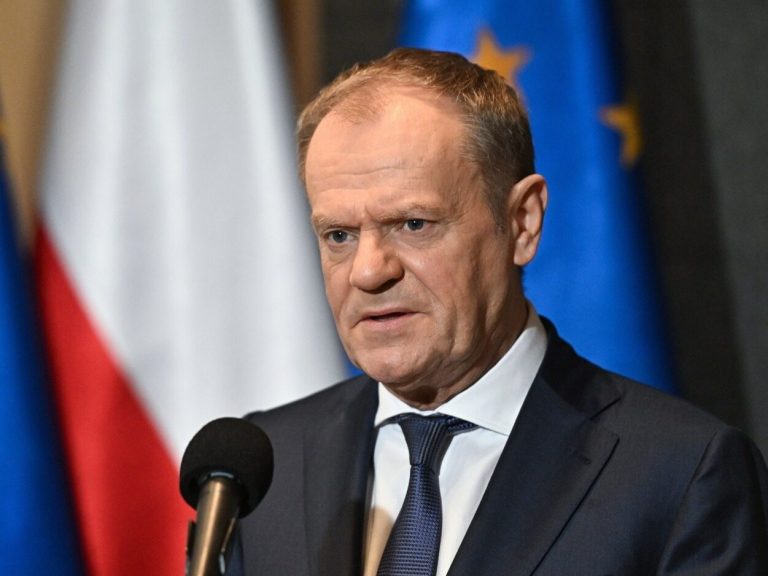The hot seat in the government. One minister lasted only 64 days

Today, Jakub Jaworowski replaced Borys Budka as Minister of State Assets. Budka held this position for five months. It may seem short, but the real hot seat was the management of the Ministry of Treasury, the predecessor of MAP. One minister lasted only 64 days.
Today, new ministers of Donald Tusk's government were sworn in at the Presidential Palace. Among them was Jakub Jaworowski, Minister of State Assets. – Economist, financier, historian, so despite his young age, a Renaissance man, will be responsible for state assets – this is what the Prime Minister praised the new minister on Friday.
Jaworowski, unknown to the general public, was appointed undersecretary of state in the Prime Minister's Chancellery a decade ago. He was also secretary of the Economic Council of the Prime Minister and the Prime Minister's plenipotentiary for the coordination of Regulatory Impact Assessment. At the beginning of 2015, he became Secretary of State in the Prime Minister's Office.
Minister of the Treasury. Extremely hot seat
Jaworowski will replace Borys Budka, who headed the Ministry of State Assets for exactly five months, or exactly 152 days. Briefly, but if you look at the history of the Ministry of Treasury (MAP's predecessor), a picture emerges of a ministry whose management is an extremely hot seat. During the 20 years of its operation, ministers changed like a kaleidoscope and only one managed to survive the full term, i.e. less than 1,500 days. The shortest internship is only 64 days, or just over two months.
The history of the Ministry of Treasury begins on October 1, 1996. It was the time of the first government of the SLD-PSL coalition, and the government was headed by Włodzimierz Cimoszewicz. That cabinet carried out a reform of the government's administrative center, under which a new ministry was established, which was to be a center dealing with ownership transformations on the one hand, and on the other hand, act as an ownership body in all State Treasury companies.
The first minister of treasury was Mirosław Pietrewicz, a politician from the Polish People's Party. However, he held the position only for a little over a year, because in the autumn of 1997, as a result of the parliamentary elections, the SLD-PSL coalition was replaced by the AWS-UW coalition.
During the four-year rule of the center-right team, we had three treasury ministers. The first was Emil Wąsacz, who headed the ministry for nearly three years (1,020 days). However, it was not a thousand days of peace. The privatization of key State Treasury companies was then accelerated, such as: Centrum Department Stores, Telekomunikacja Polska and PZU. They aroused great political emotions, and Wąsacz himself had to face a motion of no confidence three times. During one of such votes, Wąsacz “saved” with only one vote, which was due to the fact that he also had politicians from his own camp against him. In the summer of 2000, Wąsacz was dismissed from his position and replaced by the Deputy Speaker of the Senate, Andrzej Chronowski. However, he was minister for less than 200 days, and in the spring of next year the management of the ministry was taken over by Aldona Kamela-Sowińska, who left after the electoral defeat of AWS in the parliamentary elections held in autumn 2001. Kamela-Sowińska was minister for 233 days. It later turned out that Chronowoski's quick departure was related to the dispute over the privatization of PZU.
In October 2001, the SLD-PSL coalition returned to power and… broke the record of its predecessors. During the government of that team, there were as many as five treasury ministers. The first was Wiesław Kaczmarek, Minister of Economy during the first left-wing government. The politician was unexpectedly dismissed at the beginning of 2003, after 445 days spent in the ministry. His successor, Sławomir Cytrycki, served for a much shorter period of time, only 85 days. The next treasury ministers in Leszek Miller's cabinet were Piotr Czyżewski (294 days) and briefly Zbigniew Kaniewski (95 days), who lost his position as a result of the resignation of the entire government. Miller's successor was Marek Belka, who appointed Jacek Socha, the current head of the Securities and Exchange Commission, as the Minister of Treasury. He headed the ministry for over 500 days until, as a result of the next elections, the right wing took power in Poland again.
More than a year after the dismissal, Wiesław Kaczmarek gave an interview to “Gazeta Wyborcza”, in which he revealed that the dismissal of the president of PKN Orlen, Andrzej Modrzejewski, at the beginning of 2002 was the result of political pressure and actions of the secret services. The second investigative commission in history was established, the so-called Orlenowska. Her activities shed new light on the activities of the Ministry of Treasury during the SLD government. Witnesses' testimonies showed, among other things, that President Aleksander Kwaśniewski was opposed to Kaczmarek's nomination as Treasury Minister, which was due to Jan Kulczyk's reluctance. The richest Pole at the time was said to have had a huge influence on the appointment of new Orlen authorities in 2002 (the composition of the supervisory board was to be determined jointly with the president and the prime minister).
64 days in the ministry
The so-called The Orlen scandal contributed to the victory of Law and Justice in the parliamentary elections in 2005. Kazimierz Marcinkiewicz became the new prime minister. At the end of October, he appointed the generally unknown Andrzej Mikosz as the Minister of Treasury. However, the minister said goodbye to the ministry at the beginning of January and he is the one who can be proud of the shortest internship (the above-mentioned 64 days) in the ministry. He left after a media publication accused him of a conflict of interest related to his wife granting a loan to a stock exchange player. Mikosz was succeeded by PiS MP Wojciech Jasiński, who headed the ministry until the early parliamentary elections in 2007 (over 635 days), which ended with the victory of the Civic Platform.
After forming the PO-PSL coalition, Donald Tusk became prime minister and appointed Aleksander Grad as treasury minister. He is the only head of this ministry who held the position for a full four-year term, spending nearly 1,500 days there (later, only Jacek Sasin would achieve this feat at MAP). This does not mean that he escaped criticism, he was accused of, among others, incompetence in saving the shipbuilding industry, or being guided by party interests in appointing presidents of State Treasury companies.
In the second government of the PO-PSL coalition, ministers changed much more often and in the years 2011-2015 there were as many as three of them. The first was Mikołaj Budzanowski, who was canceled after just over 500 days. The reason for the resignation was that EuropolGaz, a company supervised by PGNiG, signed a memorandum on cooperation with Gazprom, which was allegedly unknown to both Budzanowski himself and Prime Minister Donald Tusk. In the spring of 2013, Włodzimierz Karpiński, a PO politician, became elected and retained his position when Ewa Kopacz became the head of the government in the fall of 2014. He passed away in June 2015 as part of the reconstruction carried out after the publication of new recordings in the so-called tape scandal. Karpiński was in office for 782 days. In the last months of the PO-PSL coalition government, the position of Treasury Minister was held by PO MP Andrzej Czerwiński (153 days).
After the parliamentary elections in 2015, PiS returned to power. Dawid Jackiewicz, a politician of this party and deputy head of this ministry during its first rule, became the Minister of Treasury. He held the position for less than a year (304 days). Shortly after his departure, the Ministry of Treasury was liquidated after 20 years of its operation. The Ministry of State Assets was established three years later.





